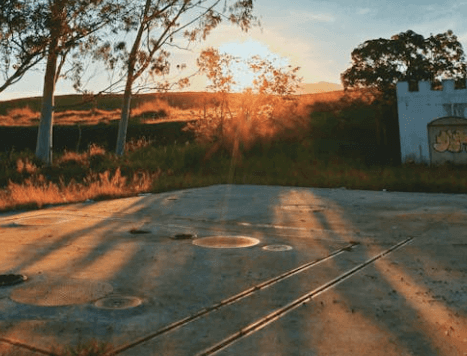Deciding what land to choose to build a dome house is a crucial step that can significantly boost the benefits of this innovative architectural style. Dome houses are highly energy-efficient, requiring up to 30% less building material than traditional homes, making them an environmentally conscious choice for individuals concerned about sustainability. Their unique shape provides excellent resistance to extreme weather conditions, offering superior wind protection. When exploring what land to choose to build a dome house, seek areas that can enhance these benefits, such as open spaces that allow ample natural light and passive heating. Steve Daria and Joleigh, highly respected real estate investors and cash land buyers are here to guide you through this important decision. With their extensive knowledge of land acquisition, they’ll help you find the perfect plot that aligns with your needs and budget. Don’t miss the opportunity to gain from their expertise—book a free discussion with Steve and Joleigh today to kickstart your journey toward a sustainable, resilient home.
Key Points
- Location Considerations: The right location is critical for building a dome house. Look for areas that maximize natural light and offer scenic views, enhancing your dome’s aesthetic and energy efficiency.
- Soil Quality: Ensure the land has good soil quality to support the foundation of a dome house. A soil test can show if the land is stable enough for your construction needs.
- Climate Considerations: Dome houses are known for their resilience to extreme weather, but understanding the local climate is essential. Choose land in regions that align with the dome’s energy-efficient heating and cooling benefits.
- Accessibility: Consider the land’s accessibility, ensuring it’s easy to reach and well-connected to essential services. Proximity to roads, utilities, and community resources can greatly impact your convenience in living.
- Legal Regulations: Before purchasing land, check for any legal regulations or zoning laws that might affect your building plans. Understanding local building codes and restrictions is crucial to avoid future complications in your dome house construction.
How does the design of a dome house affect land requirements?
The design of a dome house significantly influences the type of land you should choose, as its unique shape requires careful consideration of several factors.
Dome houses, with their aerodynamic and energy-efficient designs, need land that enhances these benefits.
Space is crucial when considering what land to choose to build a dome house; the plot should be open and free from obstructions to maximize natural light and ventilation.

The soil stability is also important, as the foundation needs solid ground to comfortably support the dome’s weight and shape.
Additionally, environmental considerations such as drainage and exposure to the elements play a role, as dome houses are designed to be resilient against extreme weather.
Selecting a plot that complements the dome’s energy efficiency can reduce heating and cooling costs, taking full advantage of the structure’s thermal properties.
Understanding these land requirements ensures that the dome house performs optimally, providing a sustainable and comfortable living environment.
Why is land selection important for dome houses?
Selecting suitable land is crucial for building dome houses, as it directly impacts the efficiency and resilience of these innovative structures.
When considering what land to choose to build a dome house, soil quality is essential, as stable ground provides the necessary support for the dome’s foundation.
The location also plays a key role; open and unobstructed land can enhance the structure’s energy efficiency by maximizing natural light and passive solar heating.
Additionally, choosing land that is less exposed to harsh weather conditions can further boost the dome’s natural weather resilience.
Environmental factors like proper drainage and minimal environmental impact should also be considered to ensure a sustainable living environment.
By understanding these factors, homeowners can fully leverage the unique benefits of dome houses, creating a comfortable and eco-friendly home.
Ultimately, thoughtful land selection paves the way for a dome house to perform at its best, offering a harmonious blend of sustainability and durability.
What climate factors should I consider when choosing land for a dome house?
1. Temperature Extremes
When selecting land for your dome house, it’s important to think about the range of temperatures the area goes through during the year.
Dome houses are built to be energy efficient, but very hot or cold weather can impact the internal climate of your home.
Choosing a location with moderate temperatures will help maintain comfort and reduce the need for extensive heating or cooling systems.
2. Precipitation Levels
Understanding the amount of rainfall or snowfall in an area is crucial when choosing land for a dome house.
High precipitation levels can impact the soil stability and drainage around your home, potentially leading to water-related issues.
Ensuring your chosen land has good drainage can prevent flooding and water damage to your dome house.
3. Wind Patterns
Wind can greatly impact a dome house’s structural integrity and energy efficiency.
Areas with frequent or strong winds require careful consideration of the dome’s orientation and additional structural support.
Selecting land that naturally shelters the home from harsh winds can prolong the structure’s life and improve energy efficiency.
4. Sunlight Exposure
Dome houses benefit from natural light, which can reduce energy costs and enhance living conditions.
When selecting land, pick areas that get plenty of sunlight all day to make the most of solar gain.
Proper placement and orientation of the dome can take full advantage of natural light, reducing the reliance on artificial lighting.

5. Natural Disasters
When choosing land for your dome house, think about the chances of natural disasters like earthquakes, floods, or tornadoes.
While dome houses are renowned for their resilience, understanding local risks can help you choose a safer location.
Evaluating disaster histories and consulting with local experts can guide you in making sound choices to protect your dome house investment.
How can soil stability impact my dome house construction?
Soil stability is critical when considering what land to choose to build a dome house, as it directly affects the foundation’s strength and durability.
Stable soil provides a solid base, ensuring the dome house remains secure and intact, even during adverse weather conditions.
Unstable soil, however, can lead to problems such as shifting or settling, which might cause cracks or structural weaknesses over time.
This instability can compromise the safety of your dome house, leading to costly repairs and renovations in the future.
Moreover, poor soil conditions can hinder the building process, increasing construction time and expenses.
Ensuring the land has stable and well-draining soil will enhance the longevity of your dome house and maintain its energy efficiency and structural integrity.
Therefore, evaluating soil stability is essential for a successful and safe dome house construction.
Are there specific permits required to build a dome house?
- Zoning Permits: Before building a dome house, you must obtain zoning permits to ensure the land is approved for residential construction. Check local zoning laws to verify the type of structures allowed and any restrictions specific to dome houses.
- Building Codes: Following building codes is crucial to ensure your dome house is safe and legal. These codes dictate construction standards, including materials used and structural integrity, which may have specific requirements for non-traditional homes.
- Environmental Impact Assessments: Many areas require an environmental impact assessment to evaluate how your construction will affect the local ecosystem. This is especially important for dome houses, which often aim to be environmentally friendly.
- Utilities Permit: Connecting your dome house to utilities like water, electricity, and sewage systems requires specific permits. Ensure you have the appropriate documentation to set up these essential services legally and safely.
- Special Dome Structure Permits: Due to their unique design, dome houses may require additional permits or inspections compared to traditional homes. This ensures that the unconventional shape meets all safety and construction standards.
- Fire Safety Permits: Obtaining fire safety permits is crucial to ensure your dome house is equipped with necessary fire prevention measures. This might include requirements for smoke detectors, sprinkler systems, or accessible exits.
- Occupancy Permits: Once construction is complete, an occupancy permit confirms that your dome house is safe to live in. This final approval is essential and verifies that all previous permits and inspections have been correctly adhered to.
How do I start the process of purchasing land for a dome house?
The process of purchasing land for a dome house begins with researching suitable locations that align with your needs and preferences.
Consider factors like proximity to amenities, community vibes, and what land to choose to build a dome house that offers stability, drainage, and sunlight exposure.
Understanding local zoning laws is crucial, as they will determine what structures can be built and any restrictions specific to dome homes.
Evaluating the land’s features, including soil quality and topography, will ensure your dome house has a solid foundation.
It’s beneficial to consult experts like Steve Daria and Joleigh, seasoned real estate investors and land buyers for cash, who can offer useful insights and guide you through the complexities of real estate transactions.
You can confidently select the perfect plot for your dome house with their expertise.
Reach out to Steve Daria and Joleigh today to get started on your journey to owning the ideal piece of land for your dream dome home.
**NOTICE: Please note that the content presented in this post is intended solely for informational and educational purposes. It should not be construed as legal or financial advice or relied upon as a replacement for consultation with a qualified attorney or CPA. For specific guidance on legal or financial matters, readers are encouraged to seek professional assistance from an attorney, CPA, or other appropriate professional regarding the subject matter.
